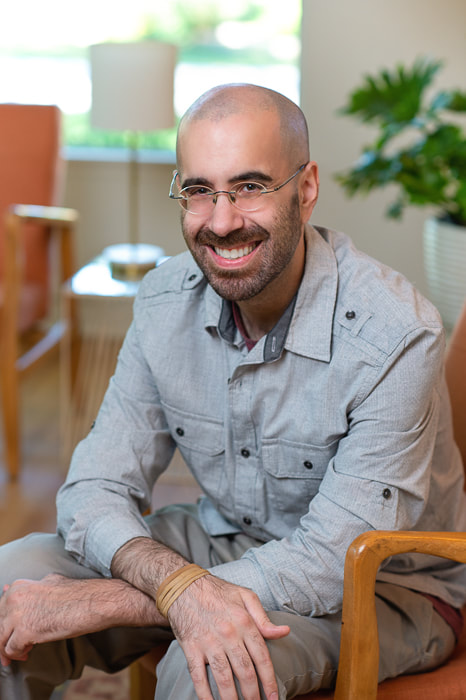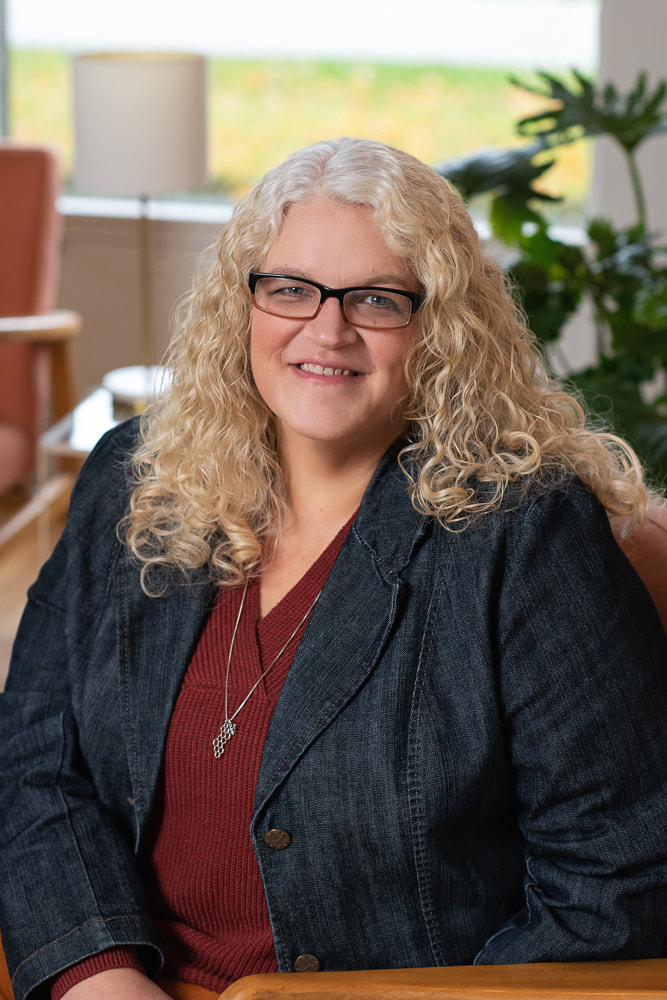Grief and Bereavement
|
If you are interested in counseling for Grief and Bereavement, call OakHeart at 630-570-0050 or 779-201-6440 or email us at [email protected]. We have counselors, psychologists, and social workers available to help you at one of our locations in North Aurora, IL, Sycamore, IL, and/or via Telehealth Online Therapy Services serving Kane County, DeKalb County, Dupage County, and beyond.
During the course of our lives, we all experience some form loss. While for some, it may be the loss of a loved one or close friend, for other’s their grief may be experienced after the loss of a job or divorce. As unique as the loss that is experienced, the individuals experience of grief as a result of that loss are as unique. Counseling can help.
What is Grief?Grief can be defined as, “the normal and natural emotional reaction to loss or change of any kind. Of itself, grief is neither a pathological condition nor a personality disorder.” That said, grief is anything but simple, and grief may be normal but when an individual is experiencing it, it may not feel that way.
As mentioned above, although grief is most often associated with the death of a loved one, grief can also be experienced after a variety of losses or life transitions including the loss of a job, home, relationship, pet, safety, etc. Whatever loss an individual may be experiencing, it is important to know that they’re not alone. While grief and the process of grieving can be a normal and a healthy experience, sometimes a significant loss and the grief associated with it can become a problem for someone in that it starts to seriously impact their ability to function, their ability to maintain relationships, etc. and may cause significant related symptoms such as depression, anxiety, posttraumatic stress, substance use, etc. Therefore, clinical intervention may be useful or needed in order to help support the individual in processing the loss and re-creating meaning in their lives and to help reduce symptoms such as depression and anxiety. While it may be difficulty to express the normal feelings of grief such as sadness, guilt, denial, shock, anger, resentment, and fear, within our society, it is important to do so in order to avoid developing mental illnesses. |
Prolonged Grief Disorder
Prolonged Grief Disorder has recently been recognized as an official diagnosis. Symptoms might include: identity disruption (e.g., feeling as though part of oneself has died), denial or disbelief about the death, avoidance of reminders that the person is gone, intense emotional pain (e.g., anger, bitterness, deep sorrow), difficulty moving on with life (e.g., problems engaging with friends, pursuing interests, planning for the future), emotional numbness, feeling that life is meaningless, and intense loneliness (i.e., feeling alone or detached from others). An individual with Prolonged Grief Disorder may experience intense yearning for their lost loved one and may become preoccupied by memories of their loved one or have intrusive distressing memories of their loved one.
While intense grief at the loss of a loved one can be very normal, for some individuals, their experience of grief and the intensity and duration of their symptoms may suggest that they may have Prolonged Grief Disorder.
While intense grief at the loss of a loved one can be very normal, for some individuals, their experience of grief and the intensity and duration of their symptoms may suggest that they may have Prolonged Grief Disorder.
How do you Treat Grief
Everyone’s journey through grief is as unique as the type of loss and the value that an individual placed on what or who they lost. Treatment might include the following:
Helping the individual reach out to supportive people and decrease any isolation from others. A supportive person may include a family member, a friend, spouse, support group. It is important to allow the opportunity to talk about thoughts and feelings an individual may be experiencing as a result of the loss. We are not meant to live this life by ourselves, especially not when we’re struggling through grief.
Express feelings in a healthy way and help manage difficult and intense emotions. This might also include talking about the death. Grief is not just one emotion but instead one word to describe the experience of many emotions. In the past, grief was thought to have steps that an individual would walk through till acceptance was obtained. Now it is seen as a fluid state that allows for variance and fluctuation. This means, that the emotions experienced as a result of grief, may ebb and flow. Initially, someone may experience denial after a loss and move towards sadness and then re-experience denial again. Additionally, an individual may reach acceptance after a loss and be triggered later in life. An example of this is if an individual’s parent dies at a young age and they have reached acceptance initially and then their grief is triggered after they become a parent. Although the length of time to resolve triggered grief may be shorter, it is still important to process the thoughts and feelings experienced.
Help the individual take time to heal. This is easier said than done. Ultimately, in order to be successful at being patient with yourself after loss, it is important to have healthy expectations of how long the process of reaching acceptance will take. This process can take weeks, months, and sometimes years, and should not be compared to anyone else’s individual experience of grief. Again, an individual’s experience of grief is uniquely theirs.
Help the individual start thinking about the future and establish new meaning in their lives without their loved one. For some individuals, imagining a meaningful life without their loved one might seem impossible. A therapist can help the person slowly start to allow themselves to start thinking about the future. Finding meaning can mean very different things to everyone. It might mean letting go of asking why your loved one died. It might mean re-evaluating your own values and purpose and life. It might mean examining beliefs around death and life. It might mean findings ways to honor and remember your loved one and carry on their memory and legacy.
Help the individual stop or reduce avoidance of reminders of the loved one. While avoidance might work in the short-term, it can cause problems in the long term, including keeping the person stuck and isolated. Avoidance may reduce opportunities for re-establishing meaning, and learning that they are capable of getting through the loss and navigating memories of their loved one. It's important that the person find a way back into living.
Helping the individual reach out to supportive people and decrease any isolation from others. A supportive person may include a family member, a friend, spouse, support group. It is important to allow the opportunity to talk about thoughts and feelings an individual may be experiencing as a result of the loss. We are not meant to live this life by ourselves, especially not when we’re struggling through grief.
Express feelings in a healthy way and help manage difficult and intense emotions. This might also include talking about the death. Grief is not just one emotion but instead one word to describe the experience of many emotions. In the past, grief was thought to have steps that an individual would walk through till acceptance was obtained. Now it is seen as a fluid state that allows for variance and fluctuation. This means, that the emotions experienced as a result of grief, may ebb and flow. Initially, someone may experience denial after a loss and move towards sadness and then re-experience denial again. Additionally, an individual may reach acceptance after a loss and be triggered later in life. An example of this is if an individual’s parent dies at a young age and they have reached acceptance initially and then their grief is triggered after they become a parent. Although the length of time to resolve triggered grief may be shorter, it is still important to process the thoughts and feelings experienced.
Help the individual take time to heal. This is easier said than done. Ultimately, in order to be successful at being patient with yourself after loss, it is important to have healthy expectations of how long the process of reaching acceptance will take. This process can take weeks, months, and sometimes years, and should not be compared to anyone else’s individual experience of grief. Again, an individual’s experience of grief is uniquely theirs.
Help the individual start thinking about the future and establish new meaning in their lives without their loved one. For some individuals, imagining a meaningful life without their loved one might seem impossible. A therapist can help the person slowly start to allow themselves to start thinking about the future. Finding meaning can mean very different things to everyone. It might mean letting go of asking why your loved one died. It might mean re-evaluating your own values and purpose and life. It might mean examining beliefs around death and life. It might mean findings ways to honor and remember your loved one and carry on their memory and legacy.
Help the individual stop or reduce avoidance of reminders of the loved one. While avoidance might work in the short-term, it can cause problems in the long term, including keeping the person stuck and isolated. Avoidance may reduce opportunities for re-establishing meaning, and learning that they are capable of getting through the loss and navigating memories of their loved one. It's important that the person find a way back into living.
OakHeart Grief and Bereavment Counselors, Psychologists, and Social Workers
|
|
|
|
|
|
|
|
|
|
|
|
|
|
Grief and Bereavement Related Blogs:
|
Traumatic grief specifically takes place after a loved one passes away in a traumatic manner and typically occurs in a sudden, unexpected manner. If one tends to bottle-up grief or pretend it doesn’t exist, they may resist seeking out support, which can have a number of negative effects on one’s well-being such as increasing the risk of physical ailments, substance use concerns, and mental health disorders...(to read more, click on the link above).
|
|
Many grieving people who are facing down the remainder of December find themselves dreading what the holidays are bringing. We have the cultural expectation that the holidays are a time for unfettered joy and celebration, which creates an enormous amount of added stress when you are grieving. When you feel like getting through everyday forces you to put on a mask to hide your grief, the disparity between what you actually feel and the expectations of “joy” and “cheer” that bombard you during the holiday season makes it feel impossible to get through. You may even feel like you need to hide out and sleep through the next month to emerge once January is upon us...(to read more, click on the link above).
|
|
While grief and the process of grieving can be a normal and a healthy experience, sometimes a significant loss and the grief associated with it can become a problem for someone in that it starts to seriously impact their ability to function, their ability to maintain relationships, etc. and may cause significant related symptoms such as depression, anxiety, post traumatic stress, substance use, etc. Therefore, clinical intervention may be useful or needed in order to help support the individual in processing the loss and re-creating meaning in their lives and to help reduce symptoms such as depression and anxiety...(to read more, click on the link above).
|
|
For so many people who are grieving, getting from November to January every year seems practically impossible. People would oftentimes just rather skip the whole thing and hibernate the season away. The impulse is certainly understandable, since this is a time of year where family and happiness are emphasized everywhere around us. This year, I wanted to share some more information on actual ways to plan for the holidays (including escape plans). These recommendations are just that, only recommendations and may not be right for you or your situation. Every family tradition is different and has a different importance to them...(to read more, click on the link above).
|



















